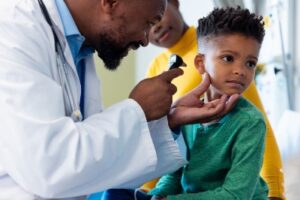
Physician, Heal Thyself
Hal P. Kramer, MD After 41 years of clinical medicine, 2025 became my “physician, heal thyself” year. I became a patient with a story. Without challenge or feedback, many of us continue to repeat the same physical exams for a variety of complaints. We all develop our tools of the trade. However, we must remember that medicine is never all-known. Old ways can lead to new ways with a questioning and inquisitive mind. How many patients have I treated while in the Navy, emergency departments, urgent cares, and private practice? …
Read More
Read More

Raising the Bar: Why Accreditation Matters in Urgent Care
Lisa H. Bishop It’s a familiar story. A friend was recently on vacation and visited a small, rural “urgent care” with a 2-day history of nasal congestion and a scratchy throat—no fever, no sinus tenderness, and a reassuring exam. She left with 4 prescriptions: a Z-Pak, a Medrol Dose Pack, a narcotic cough syrup, and Diflucan, “just in case the antibiotic causes yeast.” She reached out to me, concerned that she received 4 prescriptions for a common cold. This meant 4 unnecessary costs and 4 opportunities for side effects and …
Read More
Read More

Sick of Sick Notes
Adrienne Freese, RN, BSN, is a charge nurse at Denver Health’s Peña Urgent Care in Denver, Colorado. For a patient, what’s worse than having a violent case of diarrhea? Obtaining an employer-required sick note proving said diarrhea. Do we, as healthcare workers, watch our patients on the toilet for evidence of diarrhea? Thankfully we don’t. Unlike our patients’ employers, we take our patients’ word for it. A sick note may seem like a benign issue, but it is surprisingly and unfortunately more complicated. There are policy issues, patient barriers and …
Read More
Read More

Urgent Care Clinician Procedural Benchmarking Survey Results
Patrick O’Malley, MD; Albert Botchway, PhD; Laurel Stoimenoff, PT (ret.); and Lindsey E. Fish, MD, on behalf of the College of Urgent Care Medicine Over the past 15 years, there have been significant changes in urgent care (UC) medicine. First and foremost, this is a rapidly expanding field of medicine as urgent care centers now provide more than 200 million visits a year performed in more than 14,000 locations. Additionally, urgent care centers have transitioned from 54% physician owners to only 27% physician owners over the same time period.1 Urgent …
Read More
Read More

My AI Journey and Practical Lessons You Can Use Now
Alan A. Ayers, MBA, MAcc My artificial intelligence (AI) awakening wasn’t a lightning bolt but a slow current—a series of small jolts. I kept encountering people who seemingly talked about AI all the time—fluent in the lingo and referred to by others as “AI gurus.” From their conversations, it was clear they were putting AI into real operations—analyzing data, streamlining tasks, even building custom AI tools and agents. But it was still as if they were harboring a secret. I realized these weren’t magicians. They simply had been quietly putting …
Read More
Read More
